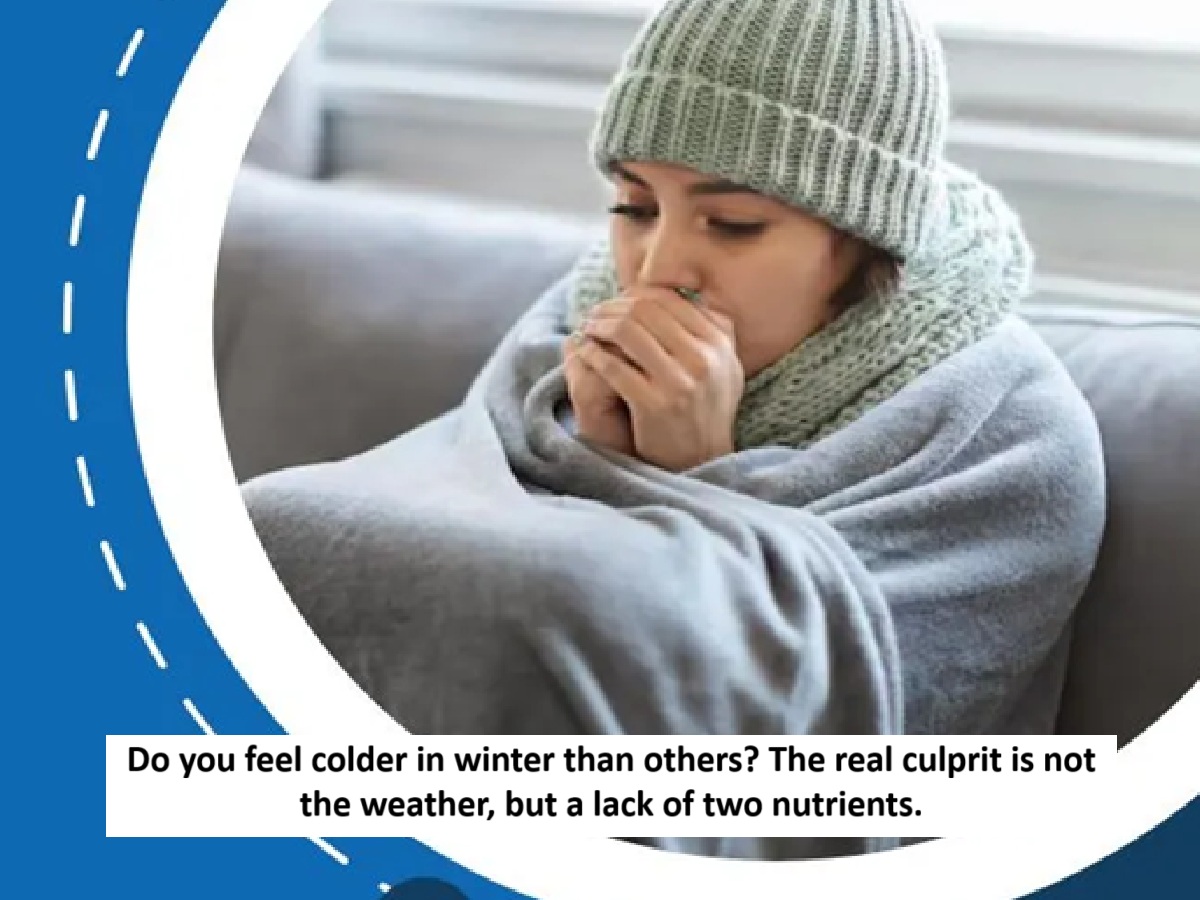
News Topical, Digital Desk : It's common to feel cold as winter approaches. But have you ever noticed that some people feel more cold than others? If you also constantly feel cold or shivering in your hands and feet, it might not be due to the cold.
In fact, sometimes a lack of certain nutrients in the body can lead to feeling colder. We're talking about iron deficiency and vitamin B12 deficiency symptoms. Deficiencies in these can cause difficulty maintaining body temperature and make one feel colder. Let's explore why this happens and what to do to prevent it.
What is the connection between cold and nutrients?
Maintaining our body temperature depends primarily on our blood circulation and red blood cells. Iron and vitamin B12 both play an important role in the formation of healthy red blood cells.
- Iron - Iron is essential for the production of hemoglobin, which transports oxygen to all parts of the body. Iron deficiency prevents the body from producing the proper amount of hemoglobin, leading to anemia. Anemia prevents the body from adequately delivering oxygen to all parts of the body. This prevents the body from generating heat, and the person often complains of feeling cold, especially in the hands and feet.
- Vitamin B12 - Vitamin B12 is also responsible for the formation of red blood cells and the proper functioning of the nervous system. A B12 deficiency can also cause a type of anemia called megaloblastic anemia. In this condition, the red blood cells produced in the body become large and weak, which prevents them from properly transporting oxygen throughout the body. This affects the body's metabolism and prevents the body from generating enough heat.
Other symptoms of these deficiencies
- feeling tired and weak
- Yellowing of the skin
- shortness of breath or dizziness
- rapid heartbeat
- having a headache
- Hair loss
What to do for protection?
Eat an iron-rich diet
There are two types of iron: heme iron and non-heme iron. Heme iron is more easily absorbed by the body. To help, include eggs, lean meats, chicken, and fish in your diet.
Sources of non-heme iron include green leafy vegetables such as spinach, broccoli, beetroot, lentils, kidney beans, soybeans, nuts (raisins, dates, figs) and seeds (pumpkin seeds, sesame seeds).
To increase iron absorption, include foods rich in vitamin C in your diet, such as lentils or spinach with lemon juice or an orange. Avoid drinking tea or coffee immediately after meals, as these interfere with iron absorption.
Include sources of Vitamin B12
Vitamin B12 is primarily found in animal products. Eat plenty of dairy products like eggs, milk, yogurt, cheese, and buttermilk. Meat, fish, and chicken are also excellent sources of B12. If you are a vegetarian, you can also take supplements after consulting your doctor.
Check regularly
If you continue to experience chills and fatigue, it's important to consult a doctor. A simple blood test (CBC) can check your iron and vitamin B12 levels. You can also take supplements based on your doctor's advice.
--Advertisement--

 Share
Share



